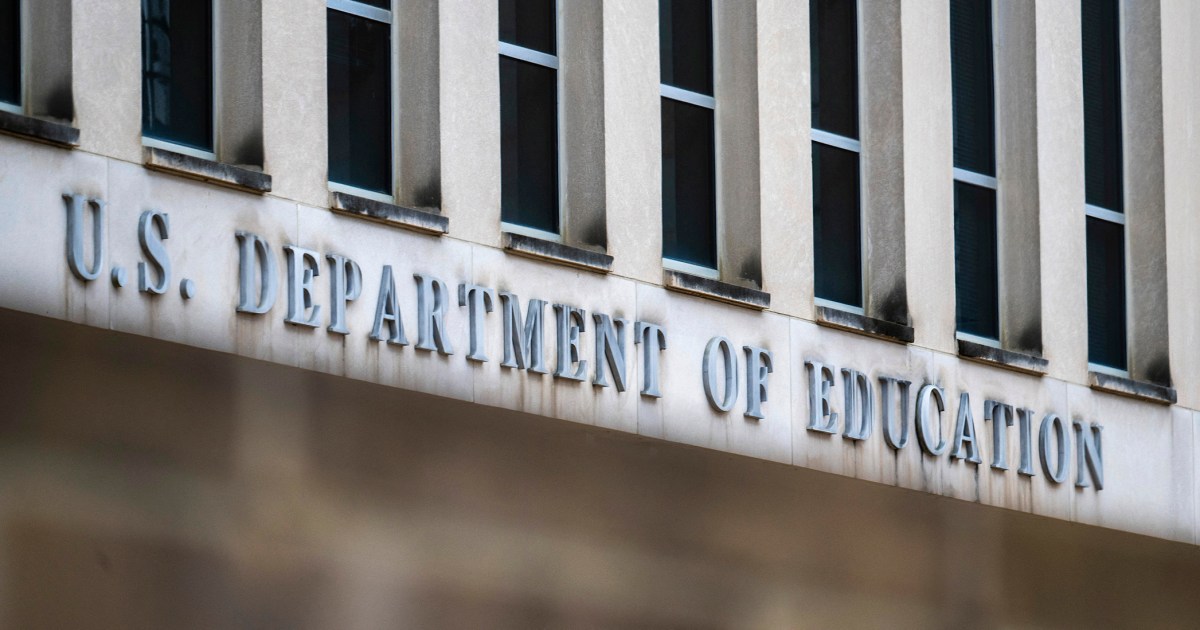Education
California lawmaker moves to phase out ultra-processed foods from public schools

A California legislator plans to unveil a first-of-its-kind bill Wednesday that would phase out certain ultra-processed foods from meals served in public schools statewide.
If enacted, Assembly Bill 1264 would direct state scientists to identify what the legislation refers to as “particularly harmful” ultra-processed products. The bipartisan bill proposes removing such ingredients from public schools starting in 2028, with the goal of eliminating them entirely by 2032.
“The more evidence we see, the stronger our conviction becomes that it is important to protect our kids from dangerous chemicals,” Democratic Assemblymember Jesse Gabriel said in a phone interview before introducing the bill. “Our schools should not be serving students ultra-processed food products that are filled with chemical additives that can harm their physical and mental health.”
Ultra-processed foods are typically made with low-quality ingredients that have long shelf lives and include packaged snacks such as chips, candies, instant noodles, mass-produced ice cream and soft drinks.
“If you pick up a product and you turn it over, and it’s got 50 ingredients and you can’t pronounce 45 of them, that’s a good indicator that that’s probably going to be something that the scientists are going to look closely at,” Gabriel said.
It’s not clear how many products served in California schools would be affected by the bill and whether they would be removed altogether. Gabriel said the legislation might mean school districts are going to buy “one brand of granola bars instead of another” to avoid harmful ingredients, or it could prompt manufacturers to tweak their recipes to comply.
Studies have linked higher consumption of ultra-processed foods to a slew of negative health outcomes, including an increased risk of diabetes, cognitive decline, heart disease and cancer.
Despite the known risks, ultra-processed foods make up an overwhelming portion of the U.S. diet. Research has found they comprise more than half of all calories adults consume at home.
In addition to not being nutritious, many ultra-processed foods have been engineered to interfere with brain signals that prevent people from overeating them, said Ashley Gearhardt, a professor of psychology at the University of Michigan.
“The foods that we see that people show the common signs of addiction with are those ultra-processed foods that are high in both carbohydrates and fats in a way that we don’t see in nature, and at levels that we don’t see in nature,” she said. “There’s evidence that especially that combo of carbs and fats has the superadditive amplification of the reward system and the brain.”
Ultra-processed foods are generally thought of as containing ingredients not typically found in people’s kitchens, such as high-fructose corn syrup, maltodextrin and soy protein isolate. But “there’s not a uniform definition” of ultra-processed foods, said Scott Faber, senior vice president of government affairs for the Environmental Working Group, a national environmental health organization that is a co-sponsor of AB 1264.
“Even if you’re reading the label, it’s hard to know which foods are engineered to be overeaten versus foods that are created to nourish us,” he said.
The bipartisan legislation would create the first statutory definition of ultra-processed foods and direct California’s Office of Environmental Health Hazard Assessment to identify the most harmful ultra-processed foods that should be phased out of school meals by 2032. The determination would be based on studies showing the products or their ingredients contribute to food addiction; whether they have been modified to be high in fat, sugar or salt; and research that links the foods to potential health issues, according to an advance copy of the bill reviewed by NBC News.
Gearhardt praised the bill for its focus on children’s health.
“We know that the earlier you get exposed to an addictive substance, the more likely you are to develop compulsive problems with it because your reward system is more malleable, your brain is more plastic,” she said.
The bill comes as momentum is growing in both political parties to improve nutrition. West Virginia lawmakers this month passed a Republican-led ban on artificial food dyes that is awaiting the governor’s signature. Synthetic food dyes are also getting attention on the federal level, where new Health and Human Services Secretary Robert F. Kennedy Jr. has called on major corporations to remove them from their recipes.
The Consumer Brands Association, a trade group, said it would not comment on AB 1264 before it had been introduced. It is co-authored by Republican Assembly Minority Leader James Gallagher, among others, and will be unveiled at a news conference at 9:30 a.m. PT (12:30 p.m. ET) Wednesday.
“When it comes to our kids, we’ve got an obesity epidemic,” Gallagher said in a phone interview Tuesday, adding that children’s health can’t be a partisan issue. “Our kids should be having healthy food to eat, and it seems like, increasingly, that is not the case.”
Gabriel has long advocated for nutrition, particularly for children. In 2023, he passed the landmark California Food Safety Act, which banned four potentially harmful food additives from products sold statewide.
In 2024, Democratic Gov. Gavin Newsom signed another of Gabriel’s bills into law, the California School Food Safety Act, which banned six artificial dyes from meals, drinks and snacks served in California’s public schools.
The newest bill addresses other harmful additives in school meals, Faber said.
“It’s not as if we’re not going to feed children at school,” he said. “We may just feed them healthier food.”
Education
Trump admin threatens to stop Harvard from enrolling foreign students

The Trump administration is continuing its battle against Harvard University — this time, canceling $2.7 million in grants and threatening to stop the enrollment of international students.
Homeland Security Secretary Kristi Noem on Wednesday announced the cancellation of two DHS grants to the school, declaring it “unfit to be entrusted with taxpayer dollars.”
Noem also said she sent a letter to Harvard demanding “detailed records” on foreign student visa holders’ “illegal and violent activities” by April 30.
If Harvard does not meet that deadline, it’ll immediately lose its Student and Exchange Visitor Program certification, she warned.
The release alleged Harvard’s foreign visa holders participated in riots and spewed antisemitic hate targeting Jewish students following the Hamas incursion against Israel on Oct. 7, 2023.
“If Harvard cannot verify it is in full compliance with its reporting requirements, the university will lose the privilege of enrolling foreign students,” a DHS news release said.
The two canceled grants were: an $800,303 grant for Implementation Science for Targeted Violence Prevention, which Noem said “branded conservatives as far-right dissidents in a shockingly skewed study,” and a $1.9 million Blue Campaign Program Evaluation and Violence Advisement grant that Noem alleged “funded Harvard’s public health propaganda.”
“Harvard bending the knee to antisemitism — driven by its spineless leadership — fuels a cesspool of extremist riots and threatens our national security,” Noem said in a statement. “With anti-American, pro-Hamas ideology poisoning its campus and classrooms, Harvard’s position as a top institution of higher learning is a distant memory. America demands more from universities entrusted with taxpayer dollars.”
It’s the latest punch by the Trump administration against the nation’s most prestigious university.
Earlier this week, the Trump administration announced that it would freeze more than $2 billion in grants to Harvard after the institution refused to accept demands that included auditing the viewpoints of its student body. Trump has also called for Harvard to lose its tax-exempt status.
On Monday, Harvard University’s lawyers sent a letter rejecting a list of demands from the Trump administration. In a statement posted online, Harvard President Alan Garber referred to the demands as “an attempt to control the Harvard community” and vowed to fight back.
A Harvard spokesperson told NBC News on Thursday that the school will “not surrender its independence or relinquish its constitutional rights,” while complying with the law.
Education
NAACP sues U.S. Education Department over DEI school funding cuts

The NAACP sued the U.S. Department of Education on Tuesday to stop its alleged illegal effort to cut off funding to schools that use diversity, equity and inclusion programs, and prevent Black students from receiving equal education opportunities.
In a complaint filed in Washington, D.C., the largest U.S. civil rights group faulted the Trump administration for targeting programs that offer “truthful, inclusive curricula,” policies to give Black Americans equal access to selective education opportunities, and efforts to foster a sense of belonging and address racism.
It also said the policies “advance a misinterpretation” of federal civil rights laws and Supreme Court precedent that undermine NAACP members’ equal protection rights and protections from viewpoint discrimination under the U.S. Constitution.
The Education Department did not immediately respond to requests for comment on the federal lawsuit.
U.S. President Donald Trump has made ending racial preferences and so-called DEI programs a top priority in his second White House term.
The Education Department had on February 14 sent a “Dear Colleague” letter to schools receiving federal funding.
That letter said federal law prevented the schools from considering race as a factor in areas such as admissions, hiring and promotion, pay, financial aid, scholarships and prizes, housing and graduation ceremonies.
Then on April 3, the department demanded certifications of compliance from schools, including an end to DEI programs.
It said this was required by Title VI of the Civil Rights Act of 1964, which bars recipients from allowing discrimination based on race, and a 2023 Supreme Court decision involving Harvard University that effectively ended race-conscious admissions in higher education.
While the department agreed in a separate lawsuit in New Hampshire not to enforce the “Dear Colleague” letter until April 24, the NAACP said some schools have lost funding while others have flinched and canceled programs.
It cited the Waterloo, Iowa, school district’s withdrawal of first-grade students from the University of Northern Iowa’s annual African American Read-In, which nearly 3,500 students at 73 schools attended.
NAACP President Derrick Johnson accused the White House of “effectively sanctioning” discrimination that U.S. civil rights laws were designed to prevent.
“Children of color consistently attend segregated, chronically underfunded schools where they receive less educational opportunities and more discipline,” Johnson said. “Denying these truths doesn’t make them disappear — it deepens the harm.”
The case is NAACP v U.S. Department of Education et al, U.S. District Court, District of Columbia, No. 25-01120.
Education
Many HBCUs need government funding but some are preparing for a future without it

Colleges across the country are facing battles with the federal government over funding, but similar cuts and the potential elimination of the Education Department may be existential for historically Black colleges and universities, according to at least six college administrators and leaders who spoke with NBC News.
Florida Agricultural and Mechanical University’s (FAMU) college of pharmacy lost a $16.3 million federal grant in late March, as the Trump administration has threatened cuts at American colleges over diversity, equity and inclusion on campus. The moves are causing several Black colleges to consider what their budgets may look like with less or no federal funding.
“We’re at this position where we realize that our ancestors did not rely on federal money in order to get the work done,” said Fatima Brunson, an assistant professor for education at Spelman College, a private women’s HBCU in Atlanta with about 2,600 students.
Still, for the 100 or so HBCUs in the country — some of which were underfunded by more than $12 billion over the last 30 years compared with non-HBCUs, according to a 2022 Forbes analysis — federal cuts may translate to staff cuts, fewer students and the elimination of certain programs, according to two HBCU administrators who spoke to NBC News on the condition of anonymity because they were not authorized to speak on behalf of their universities.
One of the HBCU leaders described a shared “culture of concern” across Black colleges.
“Students and others at these institutions are getting a steady and really unmistakable message that they are the enemies of the Trump administration at all levels,” the HBCU leader said. “If there is a hiccup there, then we are going to get a stomach ulcer.”
Fifty-four percent of Black colleges’ total revenue depends on federal and state funds, compared with just one-third for other colleges and universities, making them “susceptible to economic downturns, state divestments from higher education, or policy changes,” the authors of a 2019 report by the United Negro College Fund wrote.
The dilemma has fueled angst at these institutions — where, on average, 3 in 4 students also receive need-based federal aid — about who will have access to financial resources and benefits and who won’t. Seventy-three percent of HBCU students receive Pell Grants, the low-income federal student aid program, which were traditionally issued by the Education Department, compared with 36% of non-HBCU students, according to the United Negro College Fund.
The White House did not respond to a request for comment. Madi Biedermann, the Education Department’s deputy assistant secretary for communications, said the department will not be shutting down immediately, and that federally mandated programs have not been moved out of the Education Department as of now.
“As President Trump and Secretary McMahon have made clear, sunsetting the Department of Education will be done in partnership with Congress and national and state leaders to ensure all statutorily required programs are managed responsibly and where they best serve students and families,” Biedermann said in a statement to NBC News on Wednesday.
Valerie Kinloch, who became president of Johnson C. Smith University in Charlotte, North Carolina, less than two years ago, expected challenges in her position. She did not anticipate having to weather the eventual dismantling of the Education Department or preparing to reimagine university life without federal funds.
“And yet,” she said, “we are.”
Kinloch’s predicament mirrors what many Black colleges and universities are experiencing as they brace for potential staffing cuts and reduced student enrollment as the Education Department heads toward being shuttered by the Trump administration.
To make up for a potential shortfall, her university launched a $10 million fundraising initiative to match the amount of federal aid it receives.
Kinloch noted that while some financial responsibilities for colleges also fall to states, she is concerned about the future of federal programs like Upward Bound, which helps first-generation college students and is backed by the Education Department.
Grant funding for critical health and science research, including several ongoing projects that address housing and health care inequalities “that can transform lives,” she said, may also be in danger due to cuts.
Black colleges contribute roughly $15 billion to their local economies in addition to tens of thousands of jobs, according to the Thurgood Marshall College Fund.
For example, FAMU’s lost $16.3 million federal grant supported new faculty hires and funded research into artificial intelligence and cancer biology, including colorectal cancer disparities in Black Americans. The school is now appealing the decision to the National Institutes of Health, an agency under the Department of Health and Human Services.
No further cuts have come down yet, but Charles Weatherford, vice president for research at FAMU, said that “the loss of funding from the Department of Education could potentially impact funds that have been used to support graduate students and academic departmental innovation. Less funding opportunities would impact the types of financial support available to students to further their higher education aspirations.”
With cuts, new federal restrictions and confusion looming over colleges, some HBCU leaders say their colleges are exploring what life without government funding would look like — while acknowledging that not every campus has that privilege.
More than 300,000 students attend about 100 accredited HBCUs across 19 states, according to the National Center for Education Statistics.
North Carolina A&T, the biggest HBCU, has the largest endowment of all Black public colleges, with $202 million in its coffers. Howard University, a private school in Washington, D.C., recently became the first Black college to have a $1 billion endowment.
“As an institution and HBCU, Spelman College has positioned themselves to feel pretty confident that we’re OK,” said Spelman’s Brunson. “But it’s not the same” for each HBCU.
Eighteen Black colleges, including Howard, were among the 30 most reliant on federal funds for their operating revenues, according to 2023 federal education data.
Hassiem Kambui, an education professor at a public HBCU and author of “Africentric Education: Public Schools Versus Charter Schools,” said he sees this time of evolution for Black colleges as a moment to reinvest in self-preservation.
“This is an opportunity to look at ourselves as educators and evaluate how we are moving on education, focusing on change and the lessons we can learn associated with how American students are served given those allocated funds,” Kambui said.
President Donald Trump has threatened to pull federal funding from colleges that don’t rid their curriculums and offices of DEI-related materials and practices, even investigating 45 universities that have partnered with The PhD Project, which aims to diversify faculties at business schools. While no HBCUs are among those listed, HBCU leaders anticipate that it’s only a matter of time.
By banning DEI practices in the federal government and putting pressure on private companies to do the same, Trump has prophesied, “Our country will be woke no longer.” This comes as HBCUs are experiencing record enrollment numbers following the Supreme Court’s 2023 decision to strike down affirmative action programs and race-based admissions at predominantly white institutions.
In February, the U.S. Department of Agriculture briefly suspended its 1890 scholars program, an initiative at 19 HBCUs that covers the full tuition of selected agricultural studies students. The program was restored four days later, and the federal government did not explain why it had been initially suspended.
Many HBCU leaders see consistent roadblocks for Black schools as evidence of a coordinated strategy at the highest levels of the country to undermine their existence.
Brunson, said she sees this moment as an opportunity to reset.
“Education is under attack and it’s just something that we’re kind of in the trenches with,” she said. “If anything, it’s making us go back to the deeper philosophical reason for why we are here in the first place.”
-

 Europe2 days ago
Europe2 days agoCody Balmer, the suspect in arson at Pennsylvania governor’s home targeted the governor for his views on war in Gaza, warrant says
-

 Education2 days ago
Education2 days agoTrump administration revokes humanitarian parole of Spanish teacher
-

 Conflict Zones2 days ago
Conflict Zones2 days agoAfter two years of war in Sudan, the world can no longer plead ignorance | Conflict
-

 Conflict Zones17 hours ago
Conflict Zones17 hours agoHaiti in ‘free fall’ as violence escalates, rights group warns | Armed Groups News
-

 Sports2 days ago
Sports2 days agoStephen Curry and Jimmy Butler lift the Warriors past the Grizzlies and into the NBA Playoffs
-

 Sports2 days ago
Sports2 days agoNew Orleans Saints win lawsuit over fleur-de-lis trademark filed by ‘direct descendant of the Kings of France’
-

 Africa2 days ago
Africa2 days agoWorld Trade Organization says global trade could slide this year due to tariffs
-

 Africa2 days ago
Africa2 days agoSudan: Rapid Support Forces leader announces rival government




